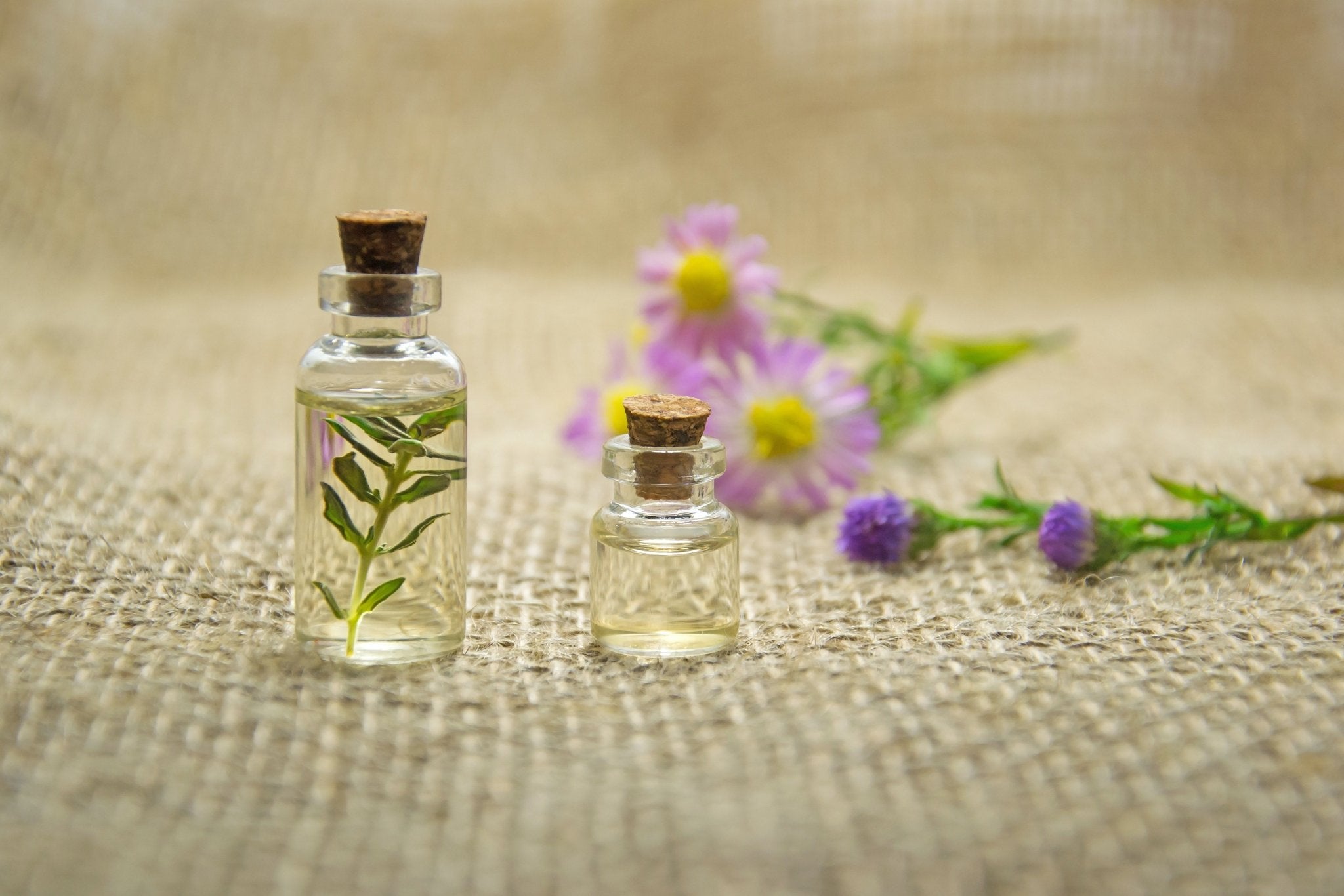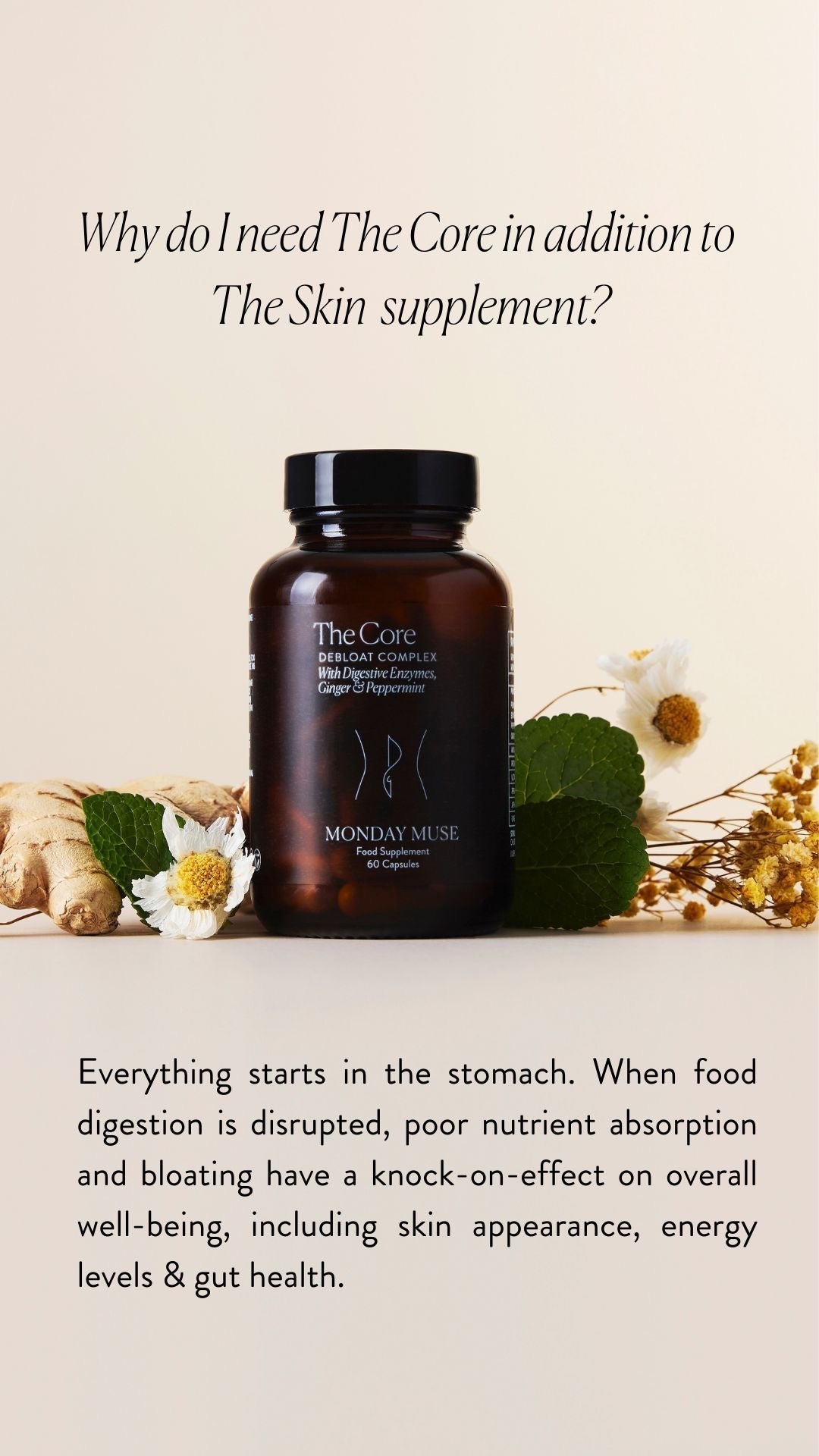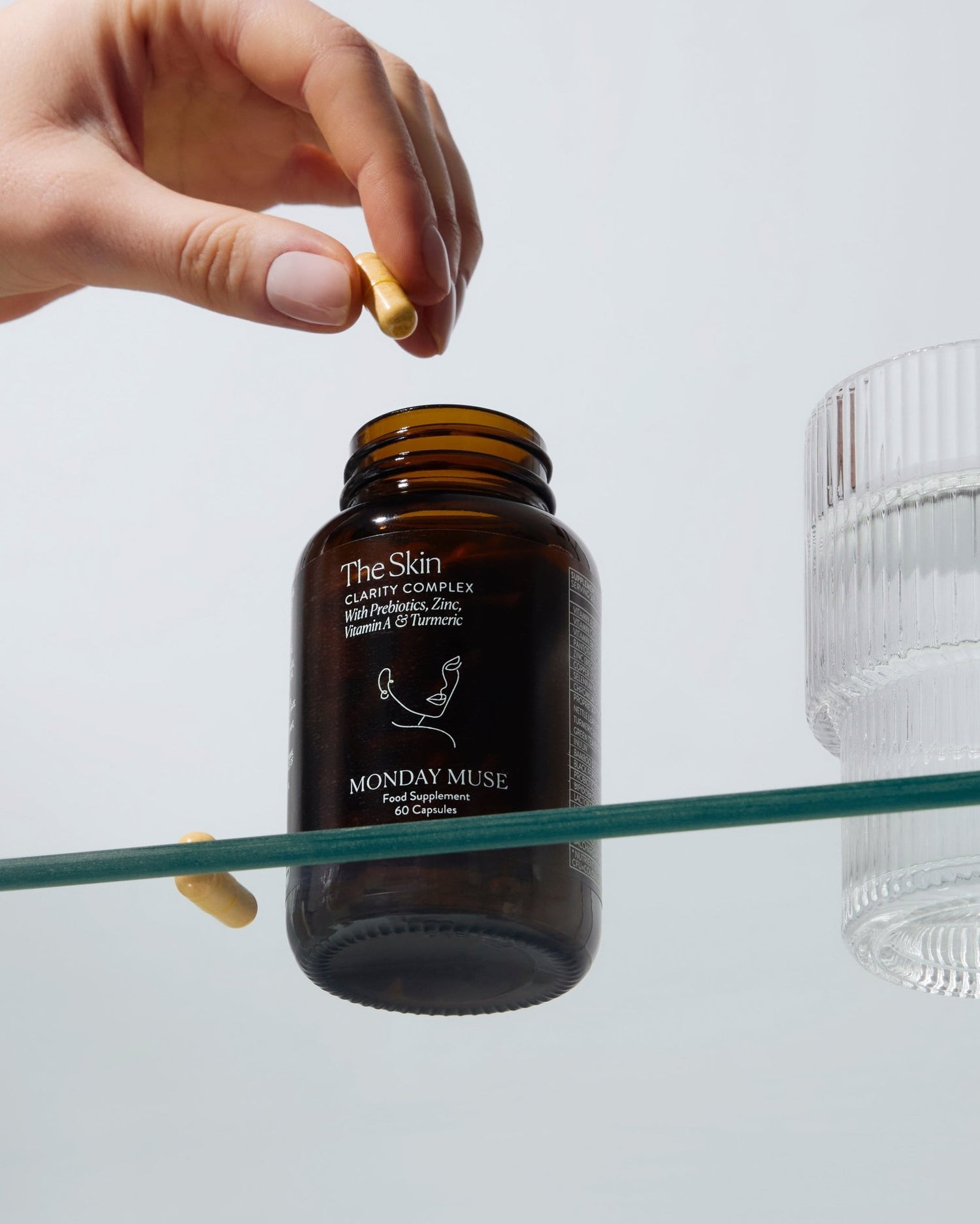The majority of skincare products on the market contain fragrance, either synthetic, natural fragrance (also known as essential oils), or both. Why? Because it helps to sell the product. The first thing we do when trying a product in-store is by smelling it; scents can provoke certain emotions and provide an enjoyable sensorial experience, everybody loves a beautiful perfume. From a formulation perspective, it usually is added to mask the ingredients that have a more unpleasant scent. However, the fragrance component does not have many beneficial functions to the skin itself, in particular to the delicate areas of the face. Research has shown that it is sensitizing and can potentially cause irritation and allergic reactions. In addition, there is evidence that shows you can develop a fragrance allergy or sensitivity in the future. This goes for many other allergies.
Everything in moderation
It is likely that you use more than one product a day on your skin which means you are layering products and therefore layering fragrance which can increase the risk of irritation. On top of that, your skin is exposed to pollution, differences in temperature, and other environmental stressors and so on. Basically, it deals with a lot on a daily basis and because the skin on our face is much more delicate than the rest of our body we want to treat it carefully.
This is why we want to offer an alternative option. Even if you don’t mind fragrance, I would personally recommend incorporating a few products that contain no perfume just to lower the amount of fragrance you apply on your face on a daily basis. I believe everything in life should be in moderation, even if the scent is heavenly.
So what to look out for?
According to EU regulation No. 1223/2009, 26 fragrances that are regarded as significant allergens have to be declared on cosmetic products. When reading the ingredient label it is pretty obvious to find the name “parfum” or “fragrance” but essential oils are more difficult to spot. They are most likely at the bottom of the ingredient label as they have a maximum usage limit but common ones are lavender oil, orange peel oil, lemon peel oil, rose oil, jasmine oil, citrus oil, frankincense oil, bergamot oil, peppermint oil, tea tree oil, and so on. The fragrant components of these natural fragrances are also listed under the name of linalool, citral, citronellol, limonene, eugenol.
Even if a brand says they are fragrance-free, that usually only means synthetic fragrances so please always check the label because very often you still find essential oils. Click here to read more about natural and synthetic fragrances.
I do recommend that you do your own research as every person’s skin is unique and has their personal preferences. There are strict limits (in the EU & UK) of fragrance and essential oil usage in each product, and not everyone reacts badly to it. However, our line focuses on delicate and reactive skin, therefore we want to only create facial products that minimize the risk of irritation.





